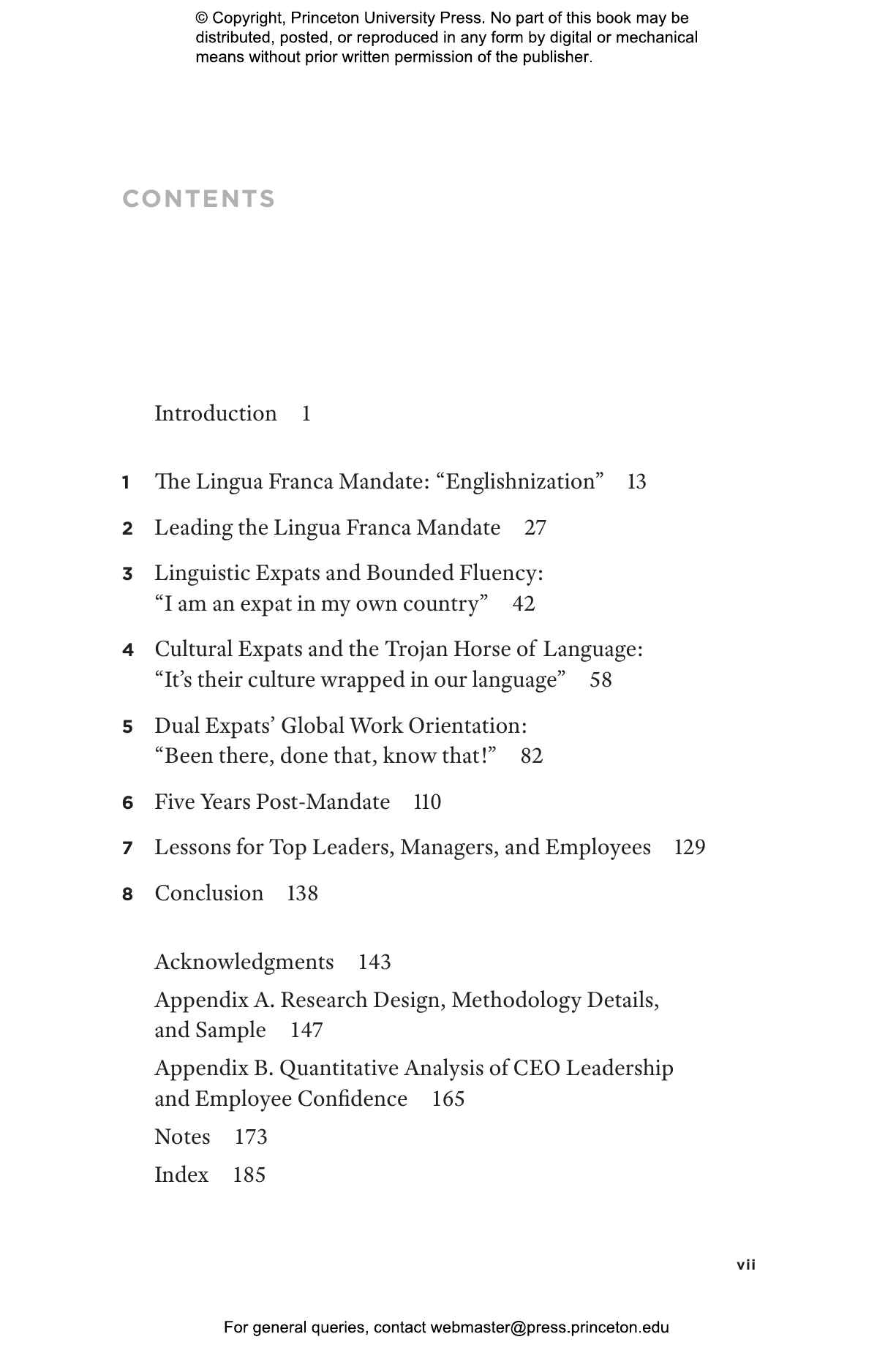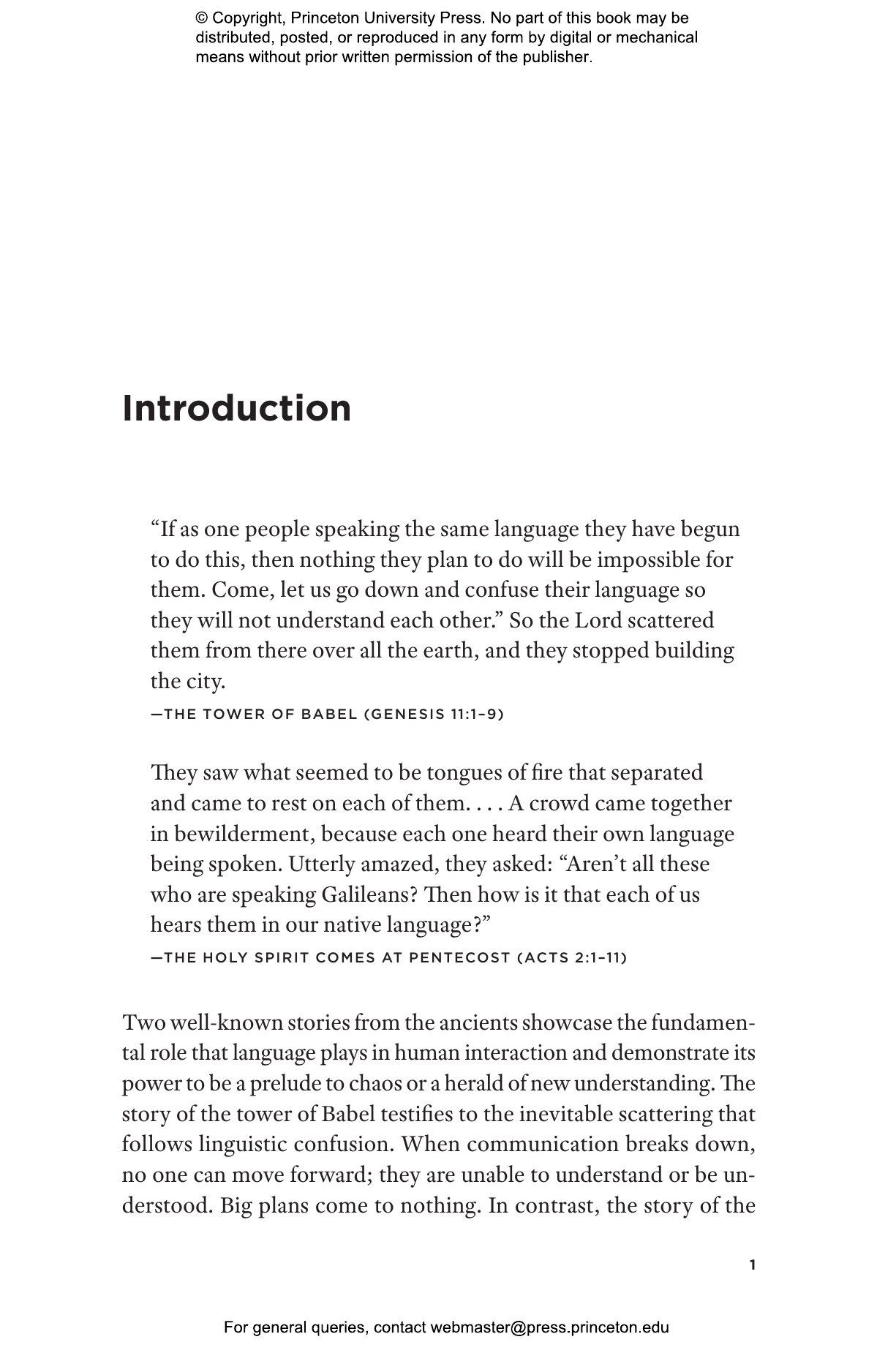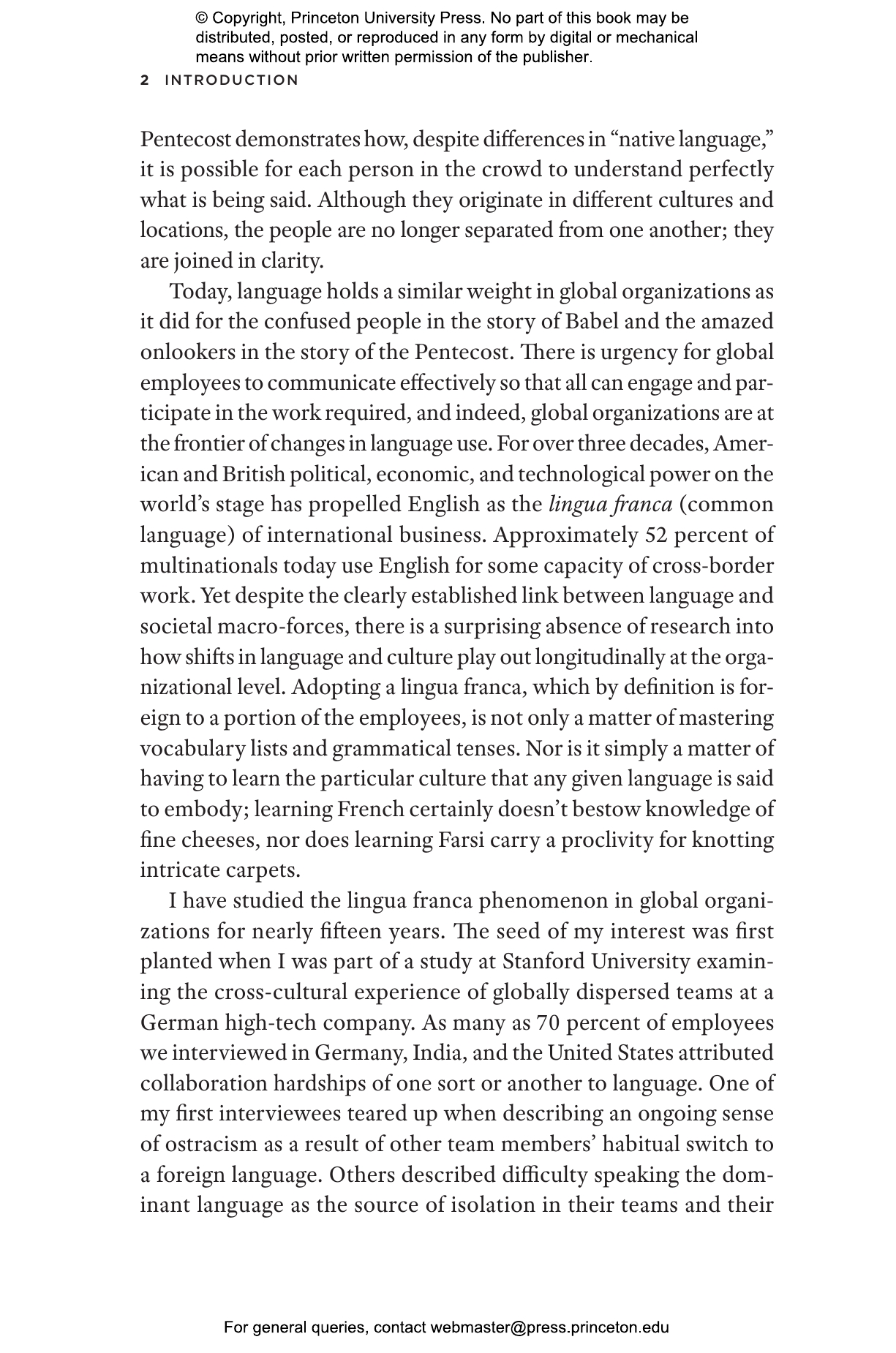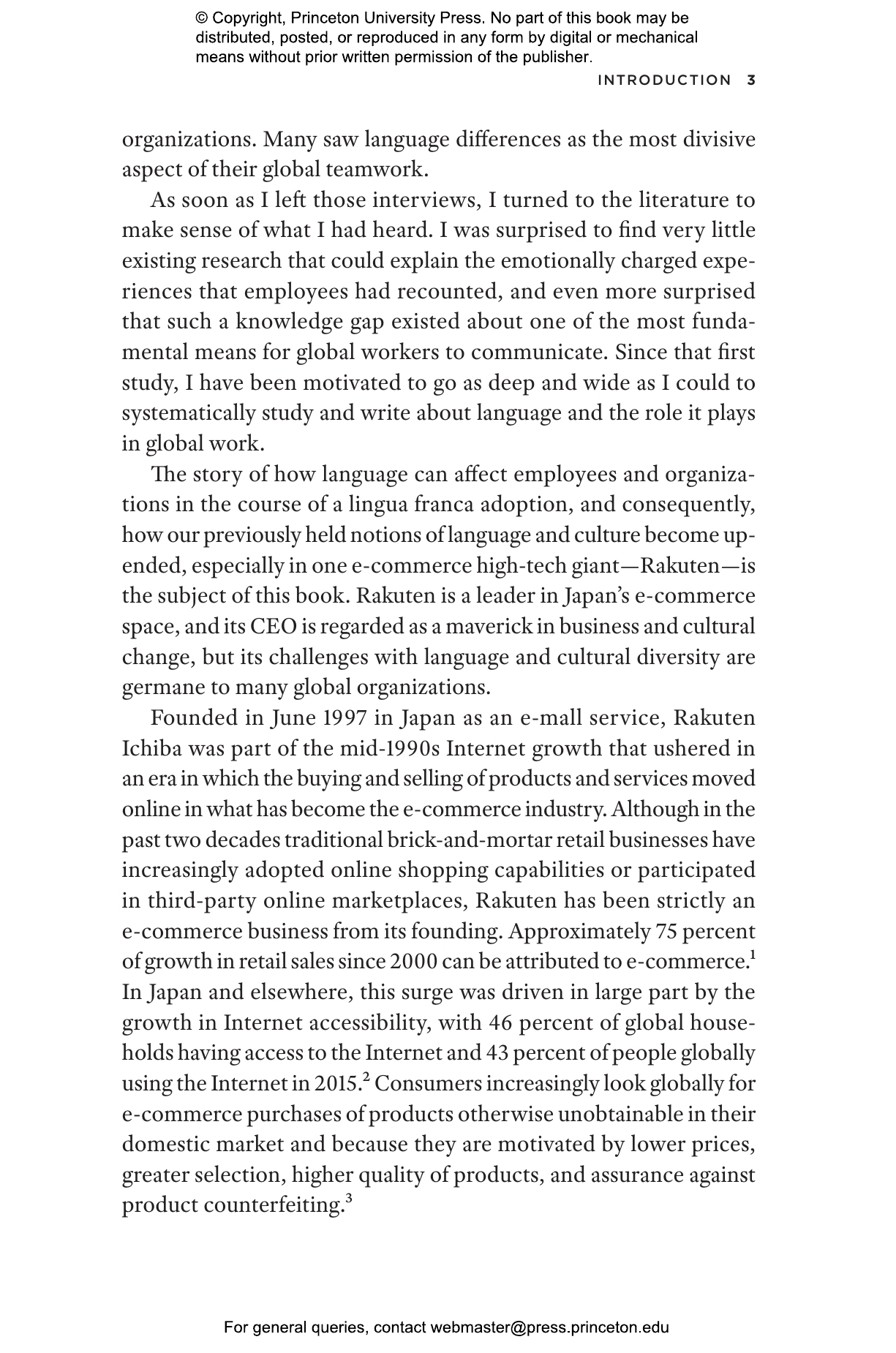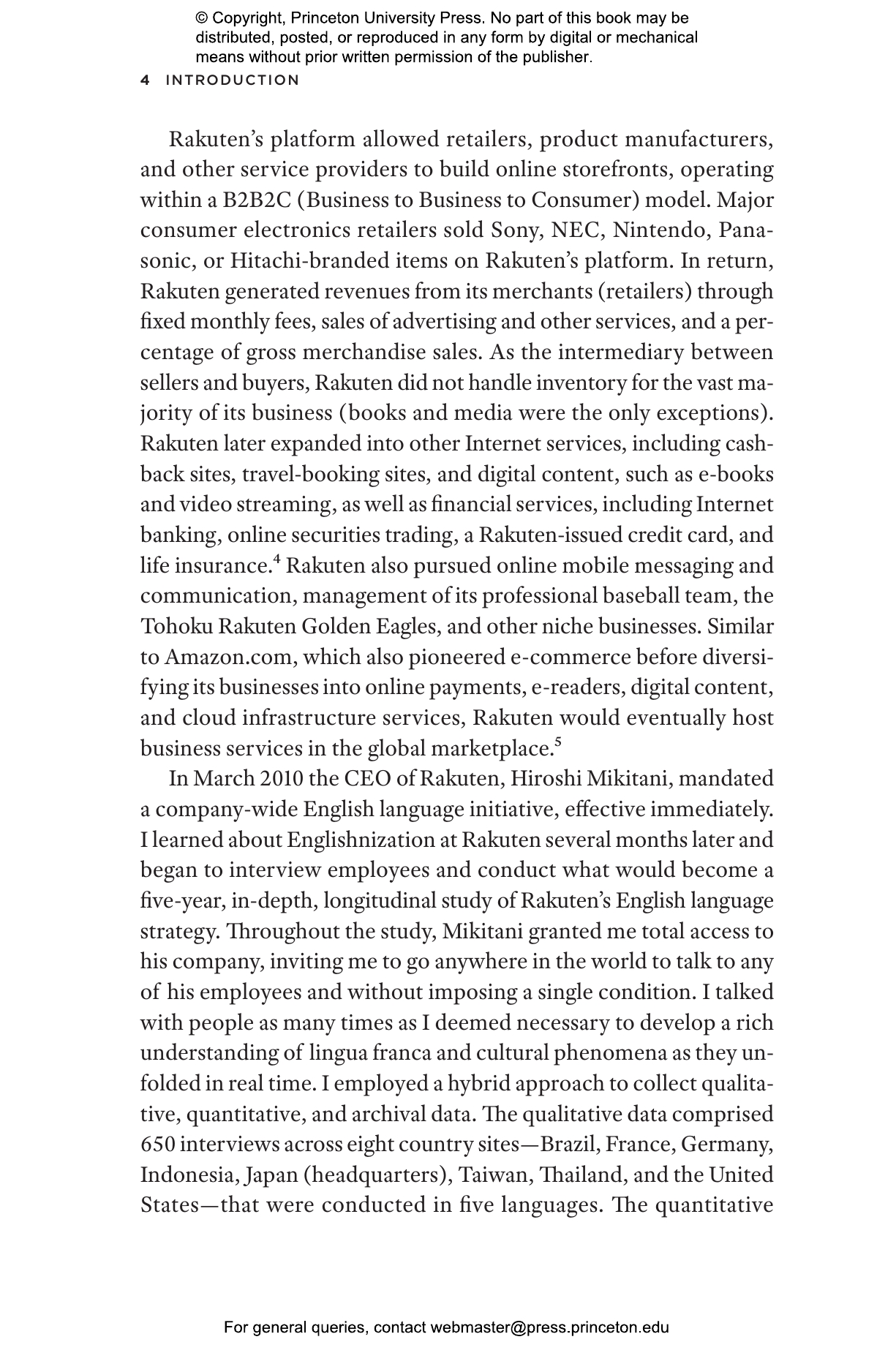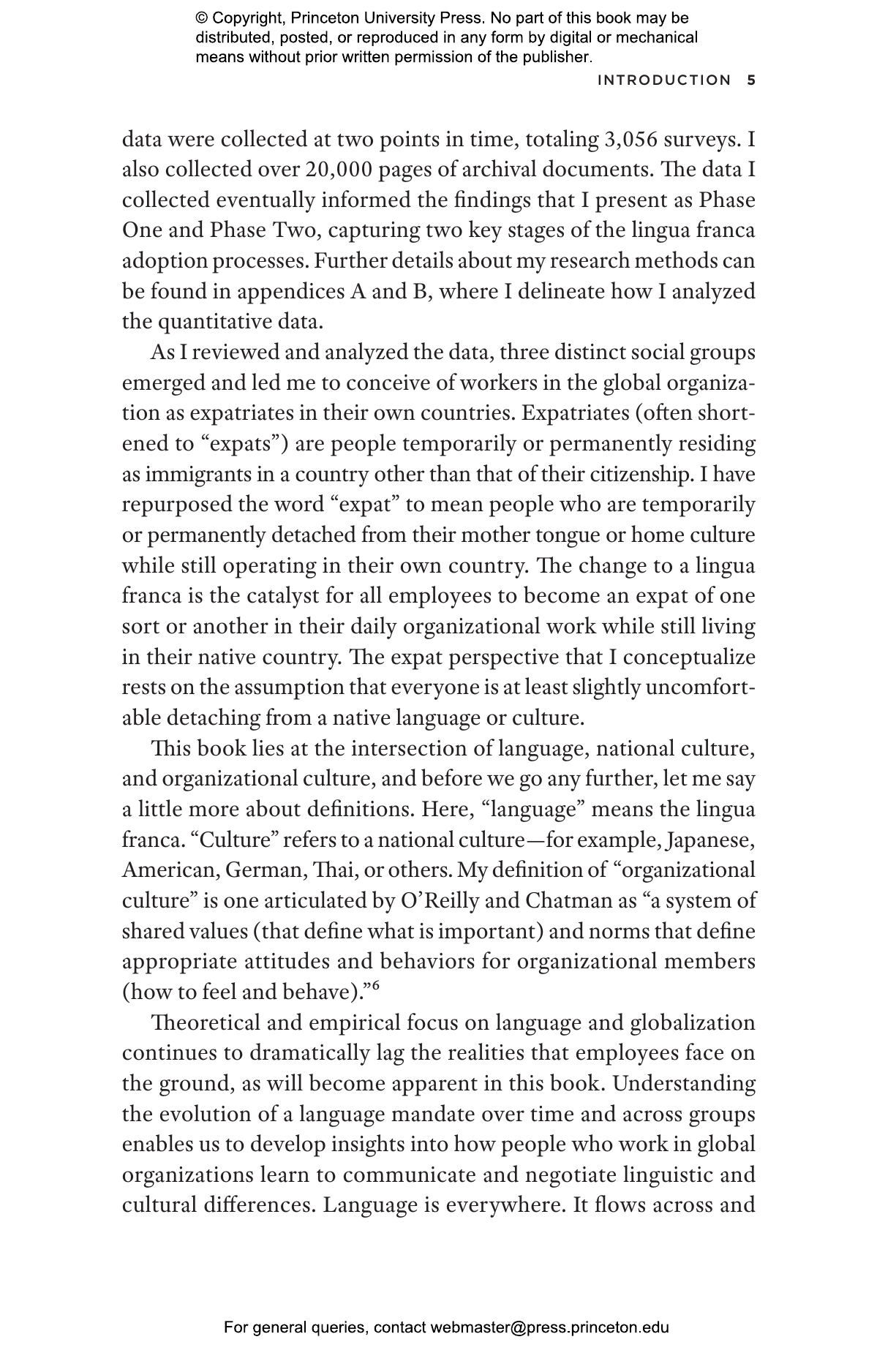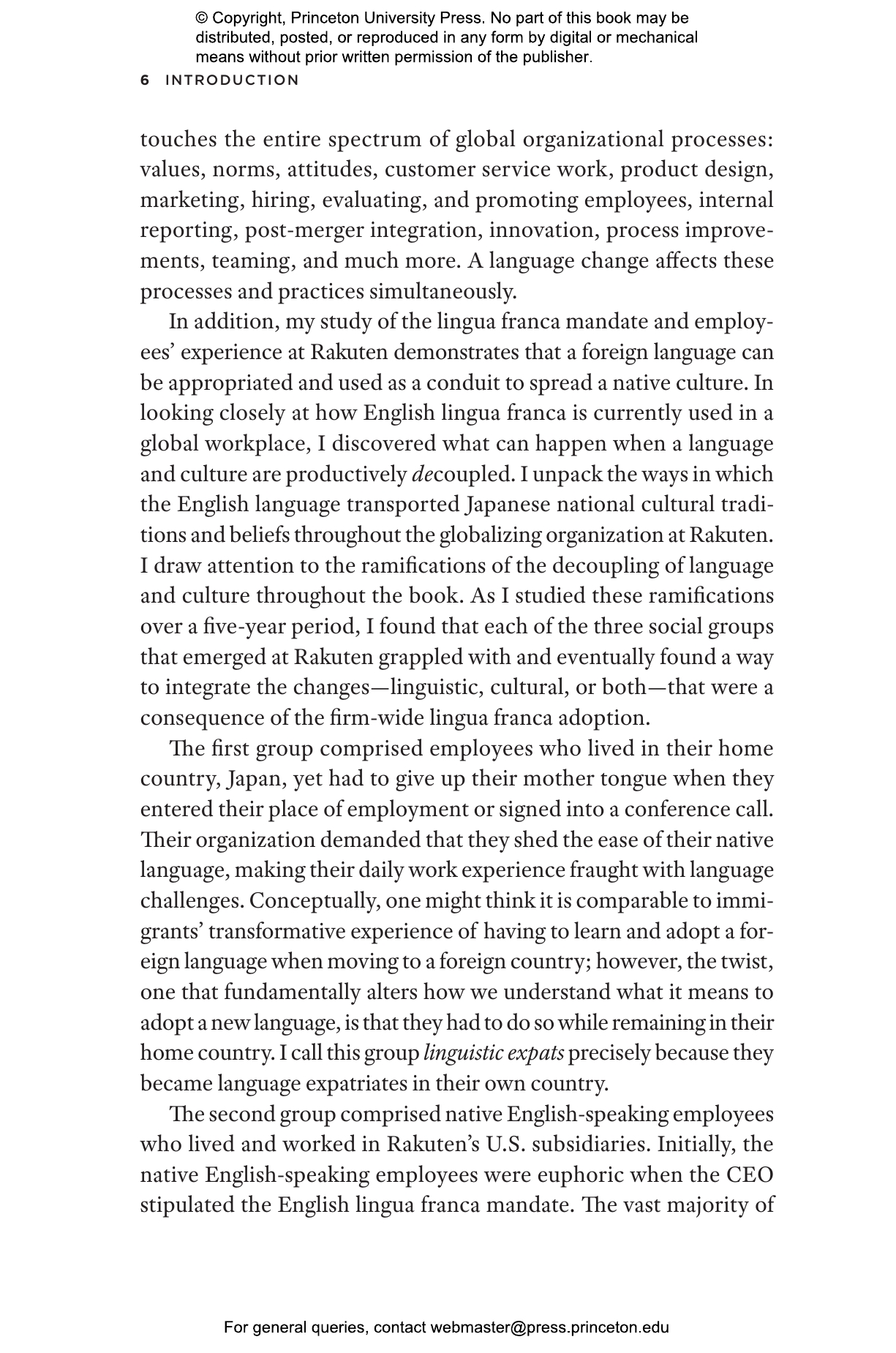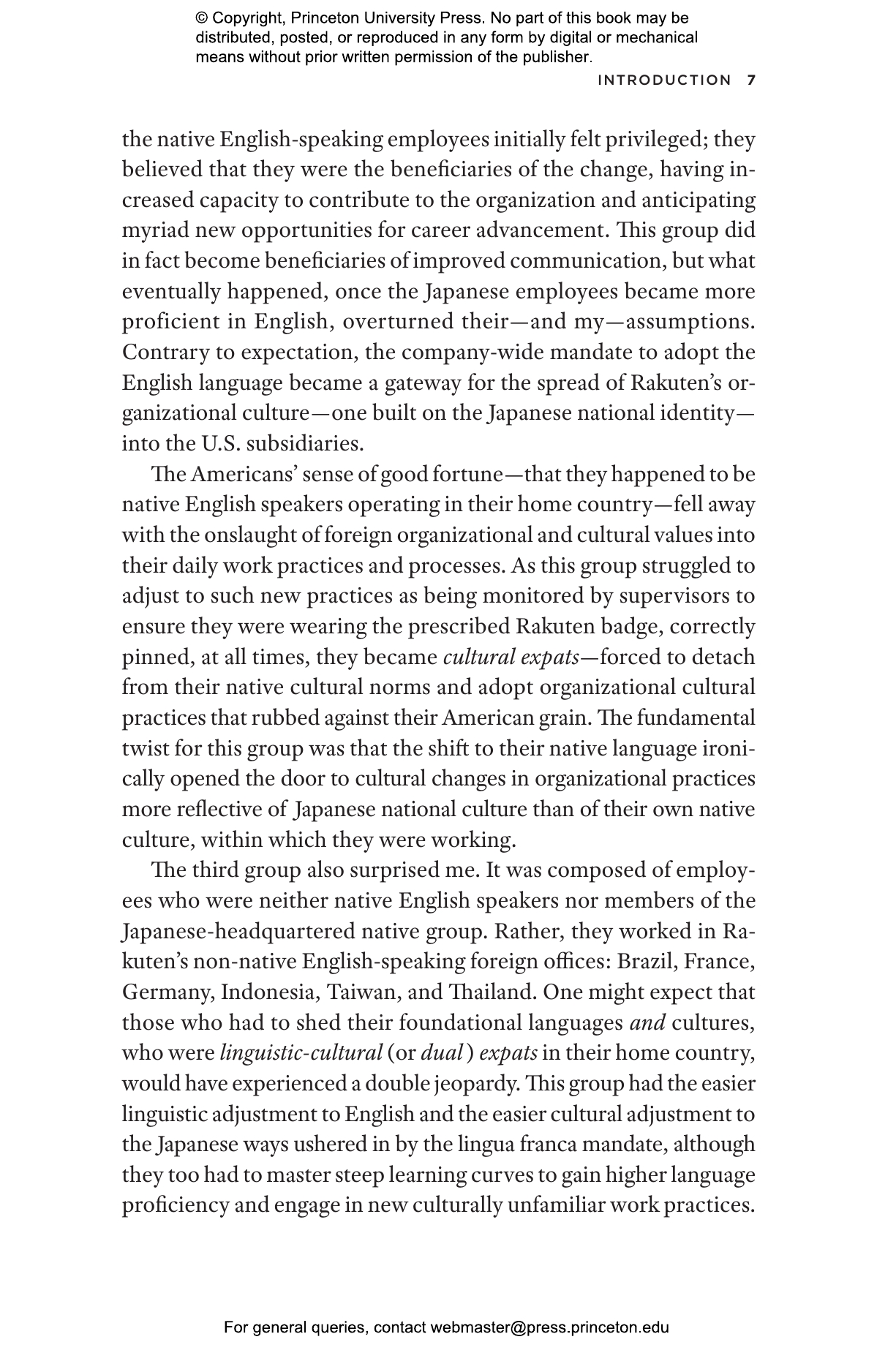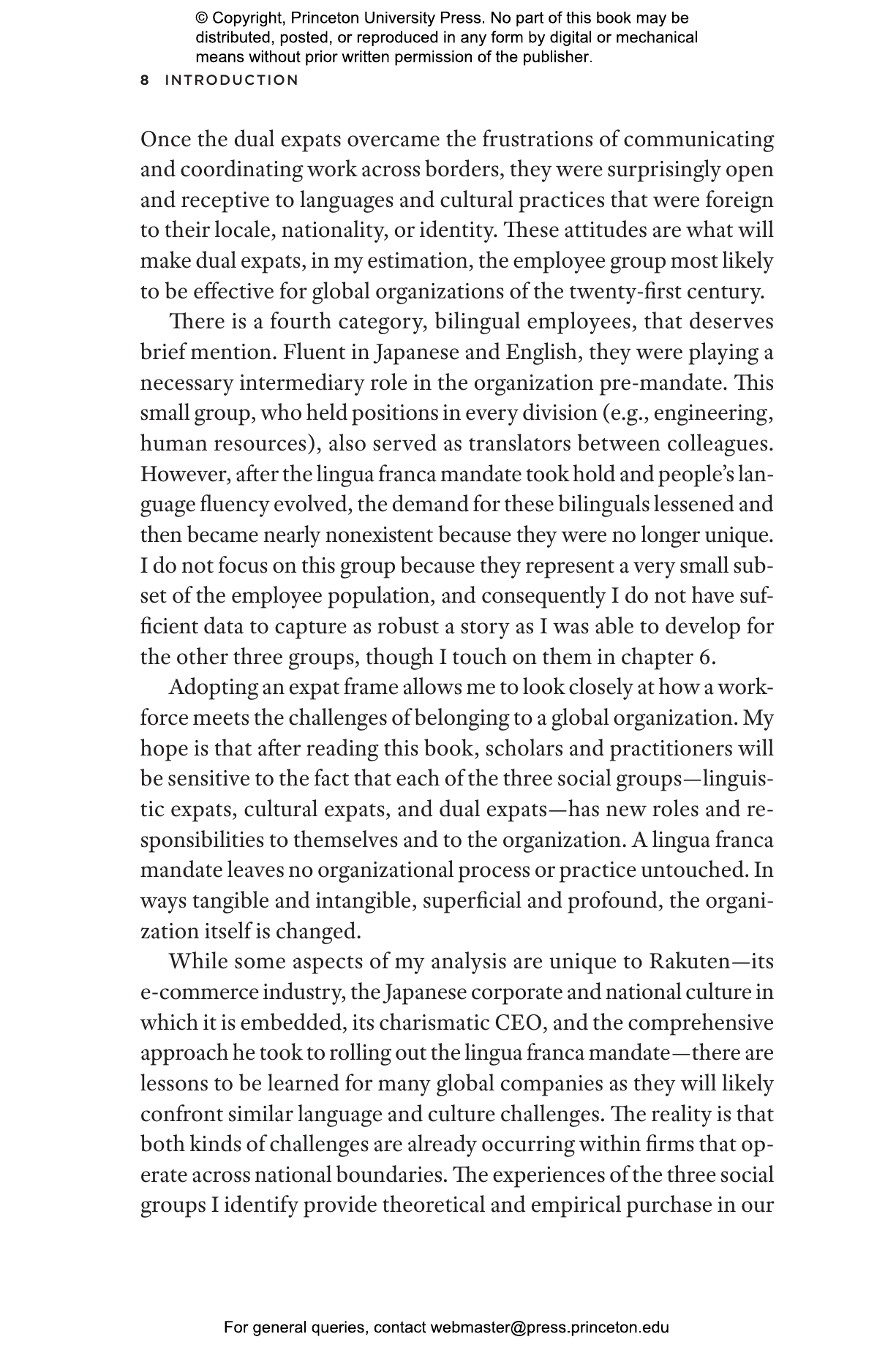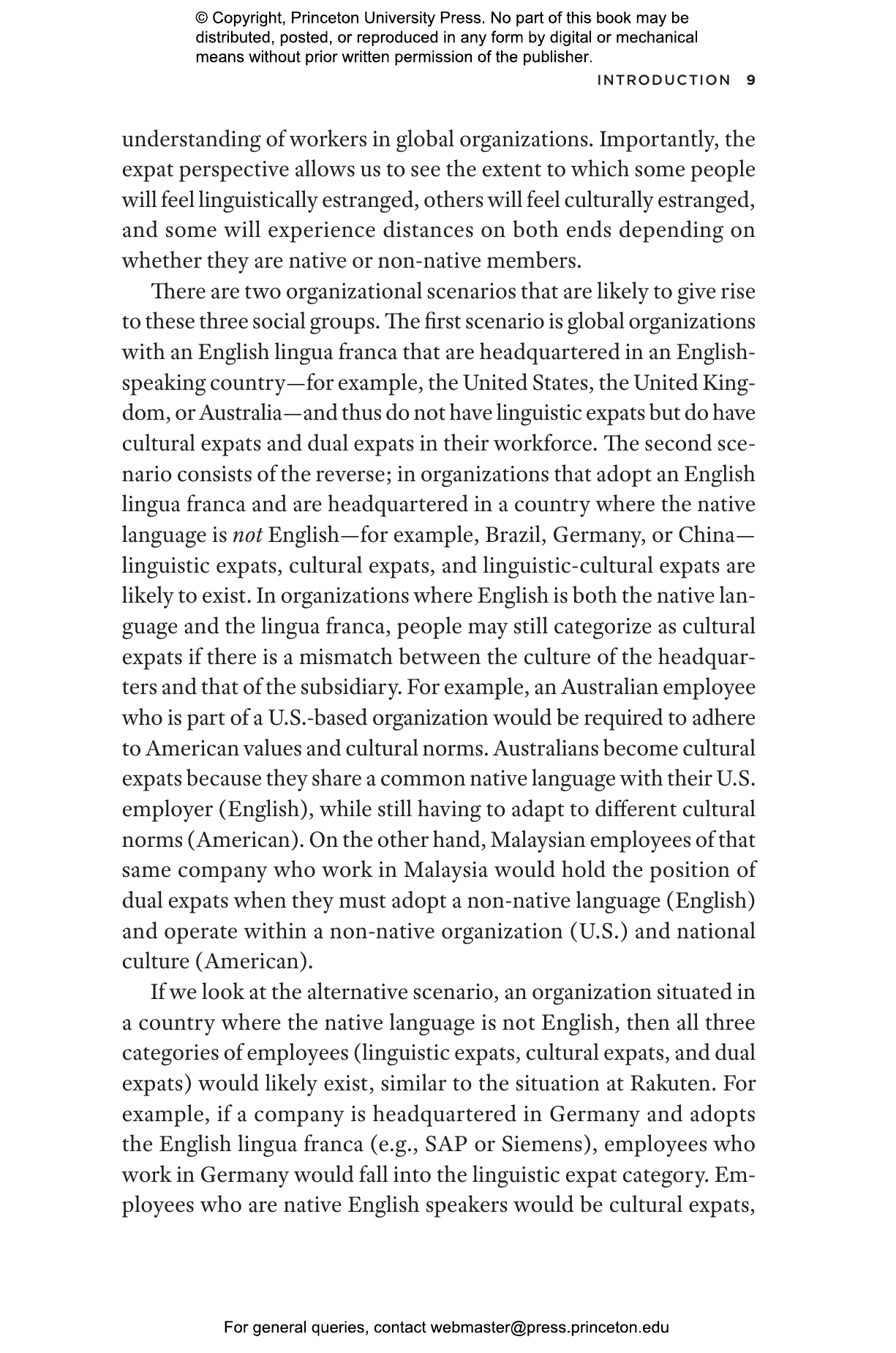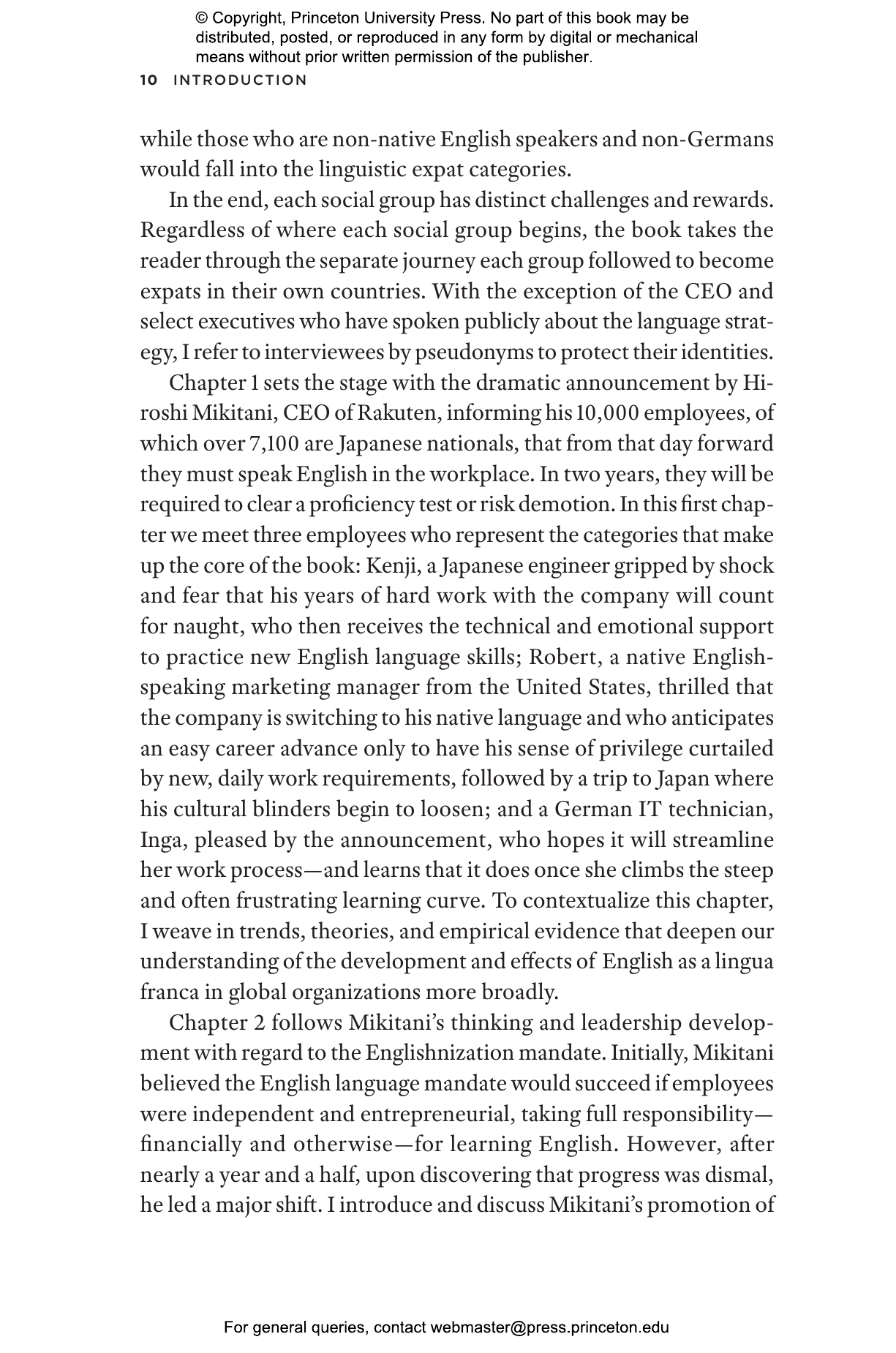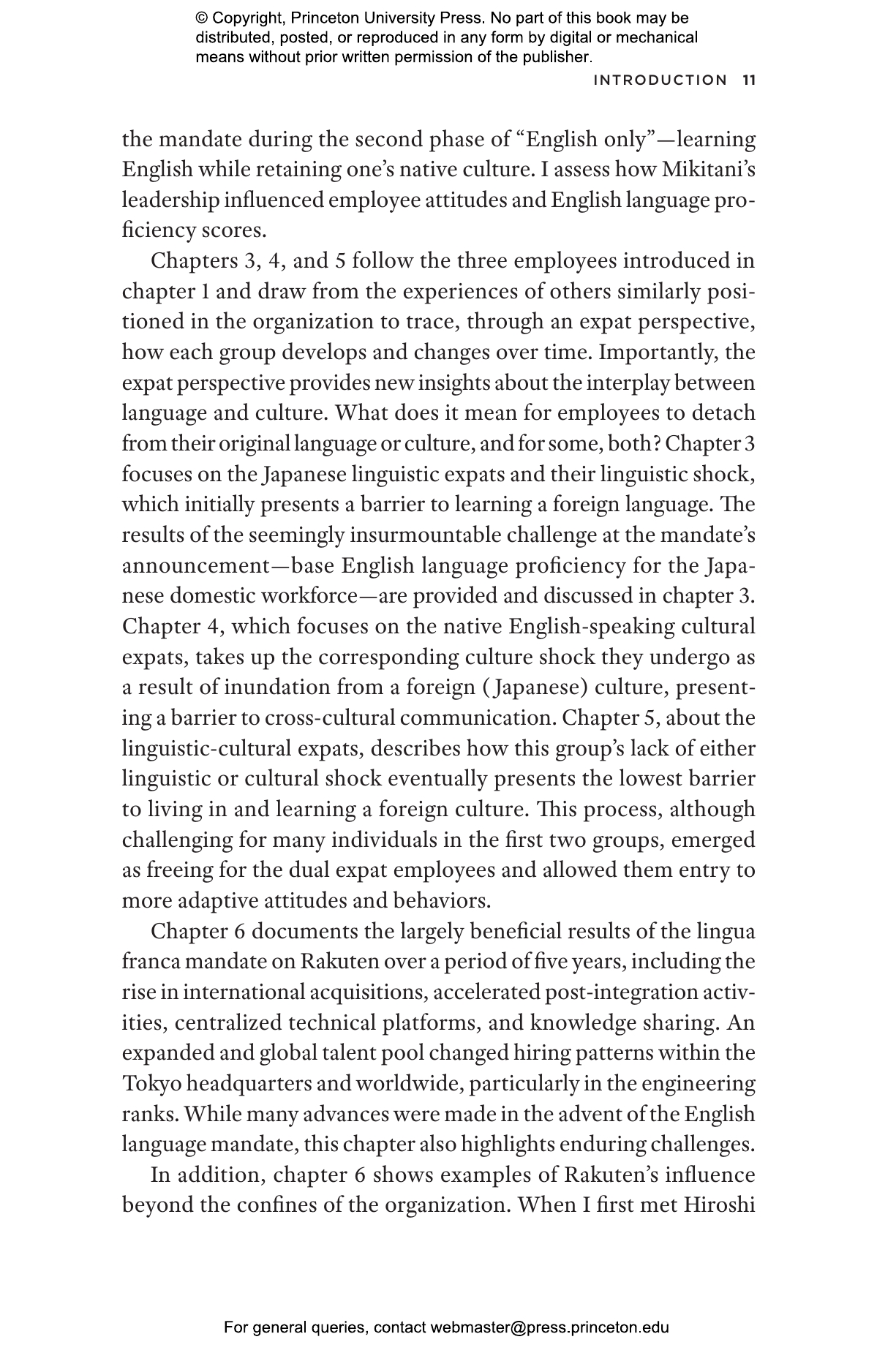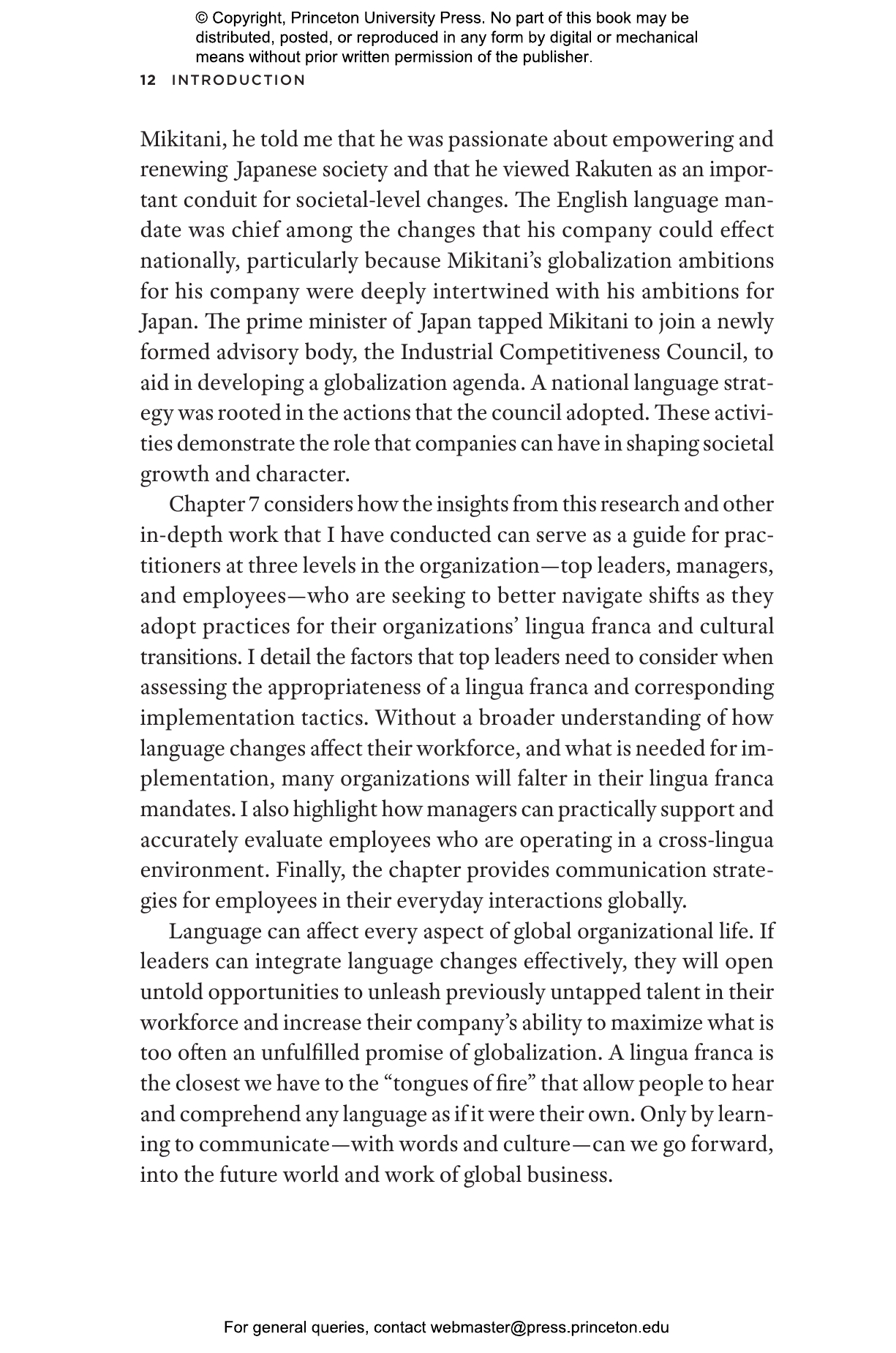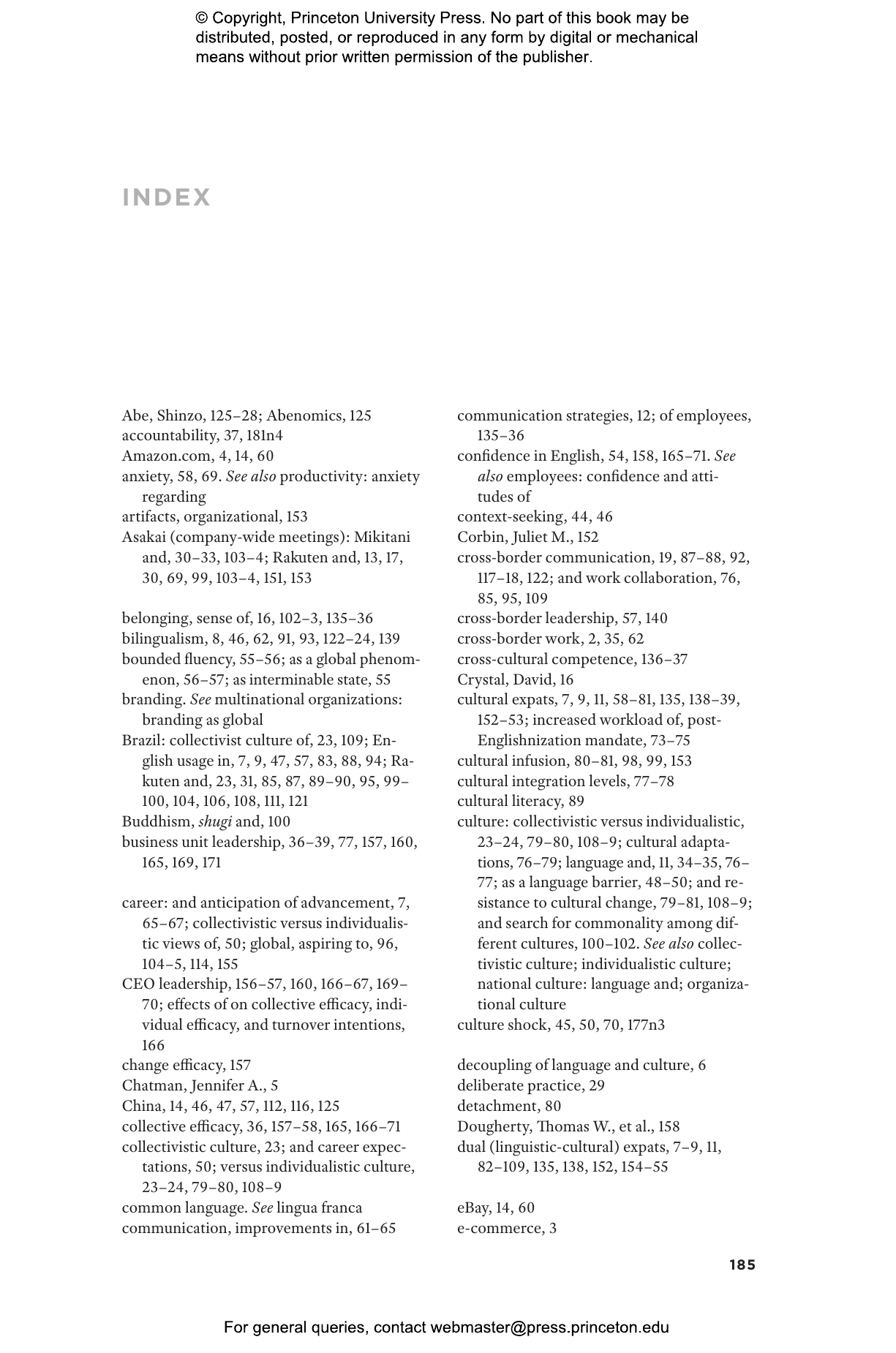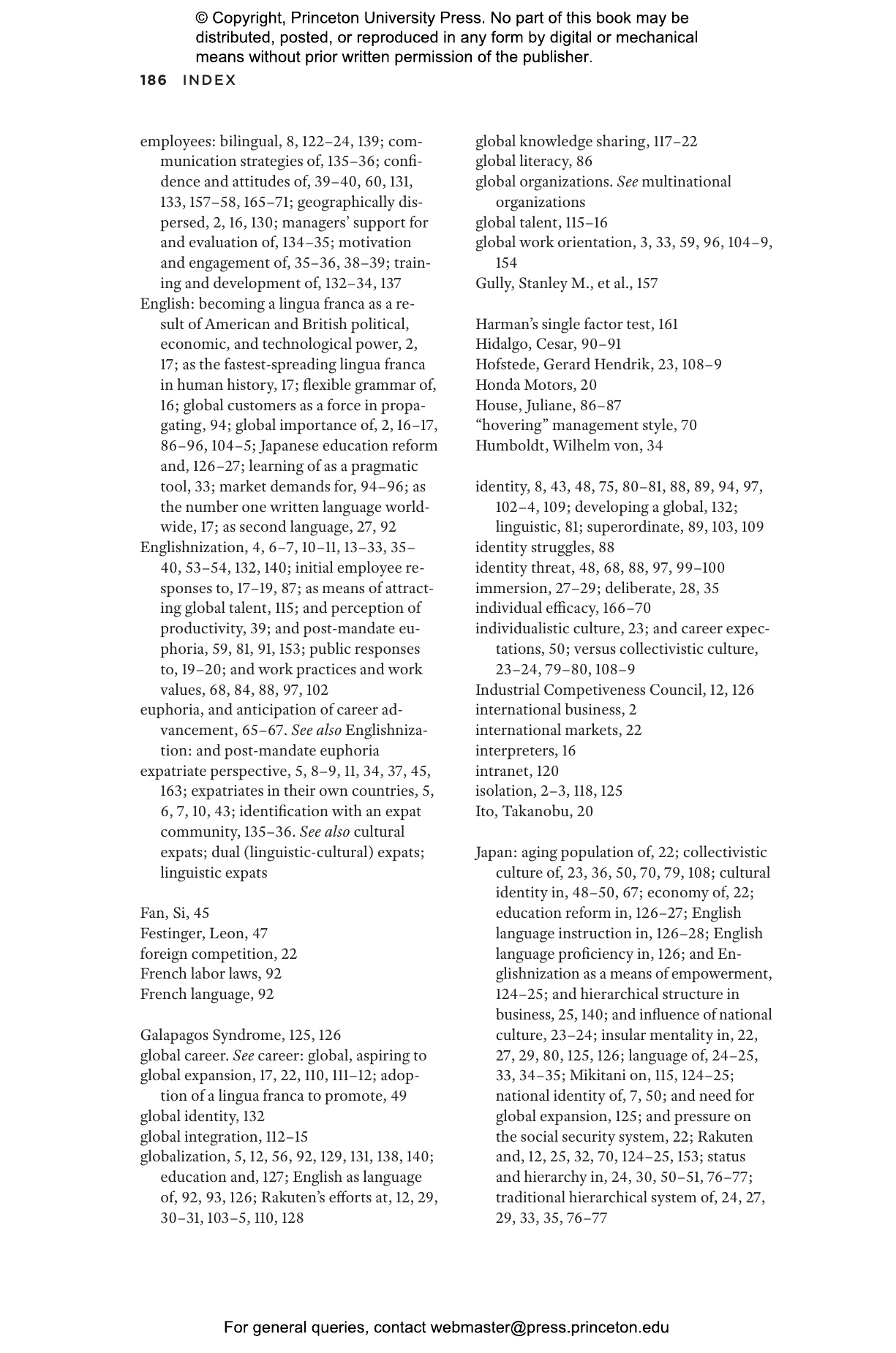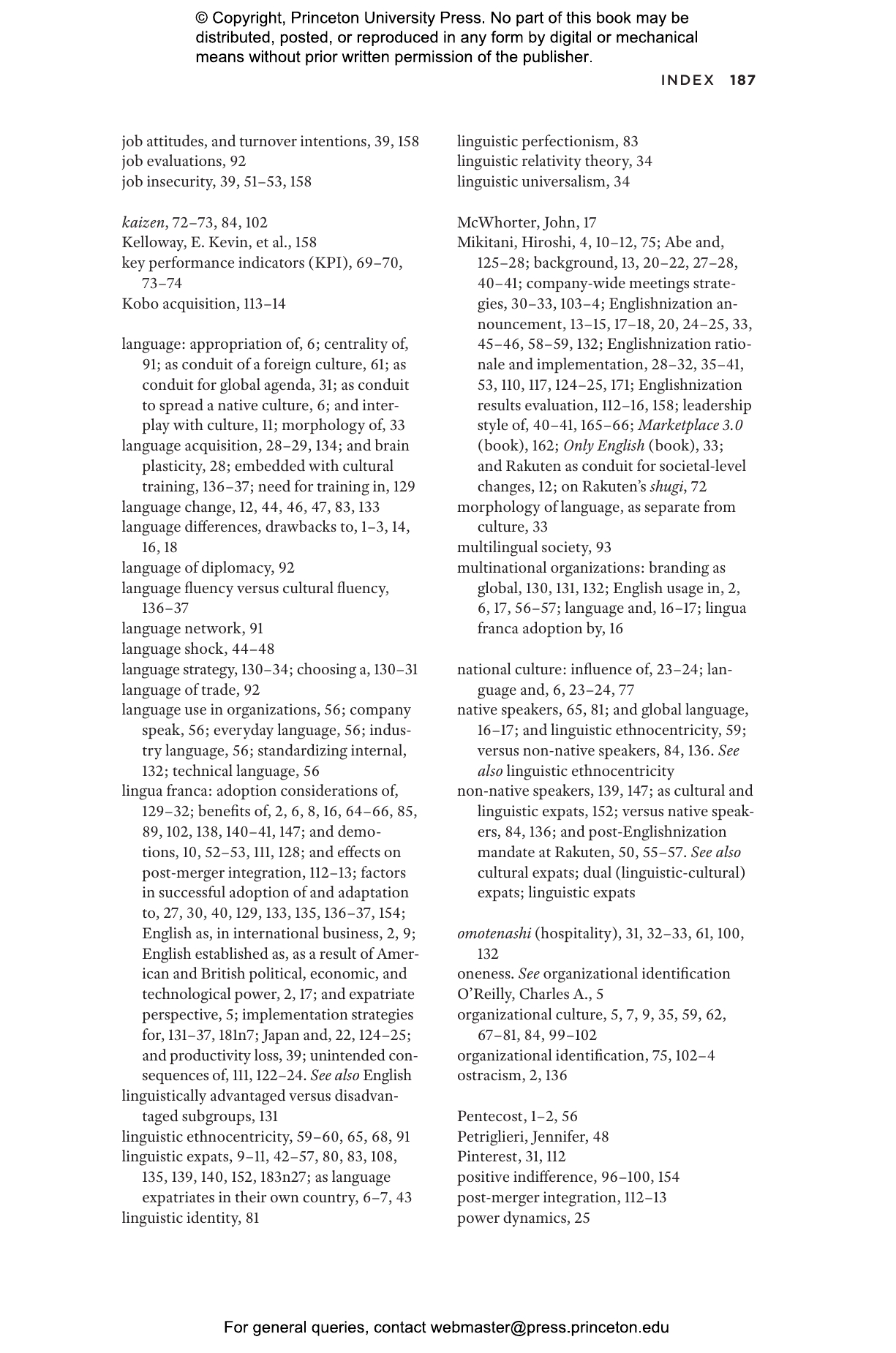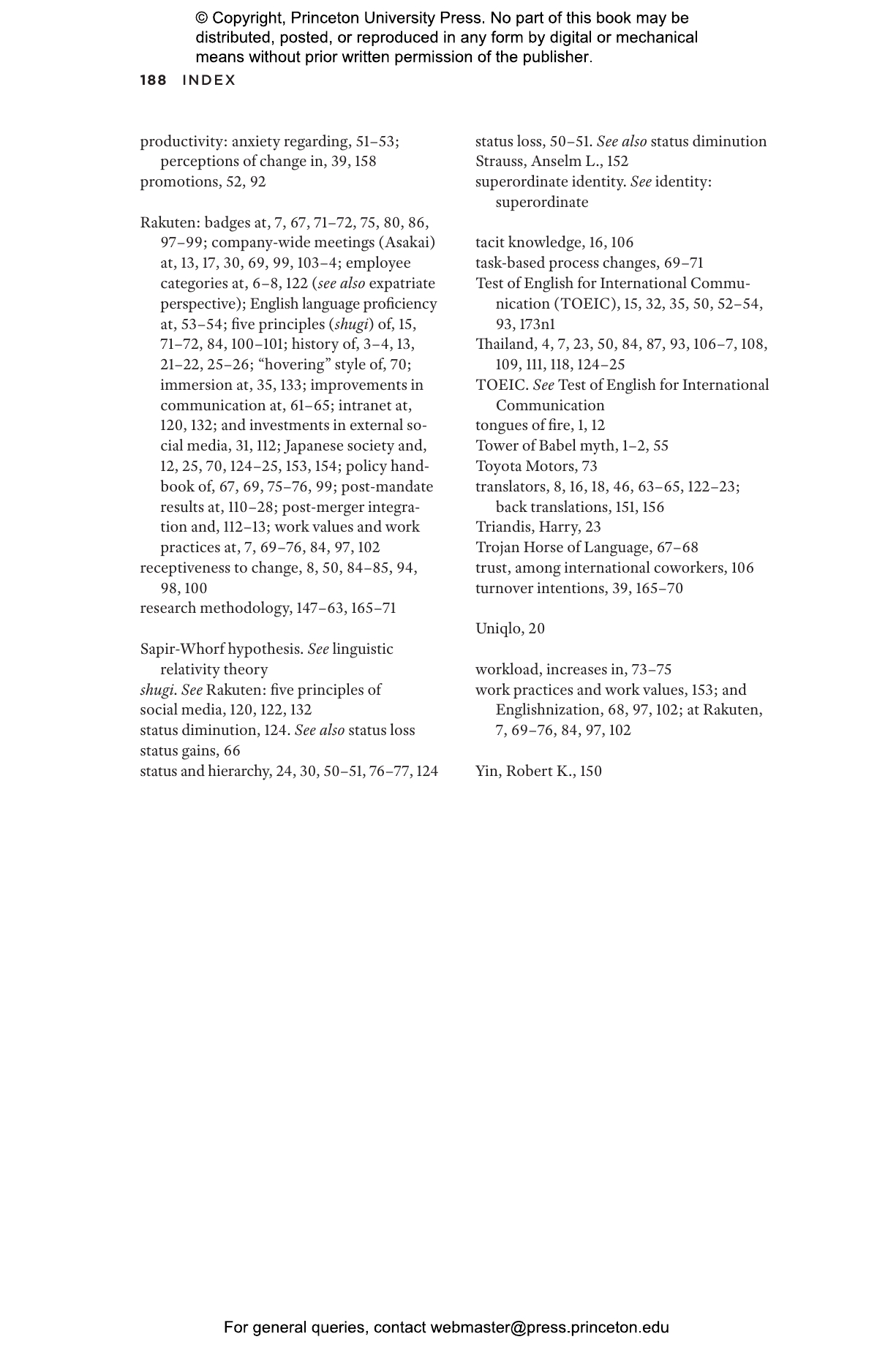For nearly three decades, English has been the lingua franca of cross-border organizations, yet studies on corporate language strategies and their importance for globalization have been scarce. In The Language of Global Success, Tsedal Neeley provides an in-depth look at a single organization—the high-tech giant Rakuten—in the five years following its English lingua franca mandate. Neeley’s behind-the-scenes account explores how language shapes the ways in which employees who work in global organizations communicate and negotiate linguistic and cultural differences.
Drawing on 650 interviews conducted across Rakuten’s locations in Brazil, France, Germany, Indonesia, Japan, Taiwan, Thailand, and the United States, Neeley argues that an organization’s lingua franca is the catalyst by which all employees become some kind of “expat”—someone detached from their mother tongue or home culture. Through her unfettered access to the inner workings of Rakuten, she reveals three distinct social groups: “linguistic expats,” who live in their home country yet have to give up their native language in the workplace; “cultural expats,” or native speakers of the lingua franca, who struggle with organizational values that are more easily transmitted after language barriers are removed; and finally “linguistic-cultural expats,” who, while native to neither the lingua franca nor the organization’s home culture, surprisingly have the easiest time adjusting to language changes. Neeley demonstrates that language can serve as the conduit for an unfamiliar culture, often in unexpected ways, and that there are lessons to be learned for all global companies as they confront language and culture challenges.
Examining the strategic use of language by one international corporation, The Language of Global Success uncovers how all organizations might integrate language effectively to tap into the promise of globalization.
Awards and Recognition
- Winner of the 2018 Bronze Medal in International Business / Globalization, Axiom Business Book Awards
Tsedal Neeley is an associate professor in the Organizational Behavior Unit at Harvard Business School.
"An interesting read. . . . One of her most intriguing findings has to do with the effect of the English mandate on Rakuten's corporate culture."—Wall Street Journal
"Neeley . . . tackles her study of ‘Englishnization' with scholarly rigor and journalistic zeal. . . . [The Language of Global Success] skillfully demonstrates that major corporate initiatives must be championed by top leadership and provide meaningful support and training for employees."—Publishers Weekly
"This analysis offers sharp insights for any multinational thinking about adopting a 'lingua franca'."—Matthew Reisz, Times Higher Education
"She weaves her observations of Rakuten into a larger story about language education in Japan, which is a crucial part of the 'Abenomics' agenda of the country's prime minister, Shinzo Abe. The result is an interesting and informative book full of practical lessons for any internationally ambitious organization."—Foreign Affairs
"The Language of Global Success is more than a study in organizational communication. It also is a study in change management."—Strategy + Business
"The Language of Global Success does a masterful job documenting the unfolding changes in work practices, impact on firm performance, and daily struggles and joys following an English-language mandate in a large Japan-based company. Neeley's careful analysis of globalization’s intertwined elements makes this a landmark study. Her compelling writing will appeal to any reader interested in the nitty-gritty of leading and understanding large-scale organizational change—and what it feels like for affected employees."—Robert Sutton, Stanford University and coauthor of Scaling Up Excellence
"In The Language of Global Success, Tsedal Neeley courageously deconstructs the greatest challenge that global companies face: language. Her breakthrough research and insights into ways people adapt to change demonstrate what is required to integrate multiple cultures and languages into a unified organization required for sustained success."—Bill George, former chair and CEO of Medtronic and author of Discover Your True North
"A very original book at the intersection of language and organizational and national culture that combines attention to a question of real interest with rigorous field research. It sets a high bar for further work in this domain—very high indeed."—Pankaj Ghemawat, New York University and IESE Business School, and author of World 3.0
"This is a fascinating examination of how an English-language mandate at a Japanese firm, Rakuten, unfolded over time and how employees reacted to it. I am not aware of any other book on the organizational aspects of such mandates, and the scope and length of this impressive study make it valuable and important."—JoAnne Yates, MIT Sloan School of Management
"With a wealth of material and rich insights, this accessible book develops a novel expatriate perspective on global work and provides concrete evidence for why language matters. It will be of great interest to scholars working in the fields of international business, human resource management, and organization psychology. A delightful read."—Rebecca Piekkari, Aalto University, School of Business



